
posted: Nov 01, 2022
Law Enforcement/First Responder Diversion and Referral Mentoring Initiative
The Law Enforcement/First Responder Diversion and Referral Mentoring Initiative provides communities interested in starting diversion and/or referral programs the opportunity to learn from established or innovative programs that have shown success in meeting the treatment needs of individuals with a substance use disorder, and in some cases may have experienced an overdose. Seven programs serve as mentors for communities interested in starting programs or for established programs interested in learning innovative practices to enhance their existing initiatives. The mentor programs selected by BJA represent a variety of diversion and referral pathways, operate in distinctly different manners, and are located in diverse settings throughout the nation.
Read more
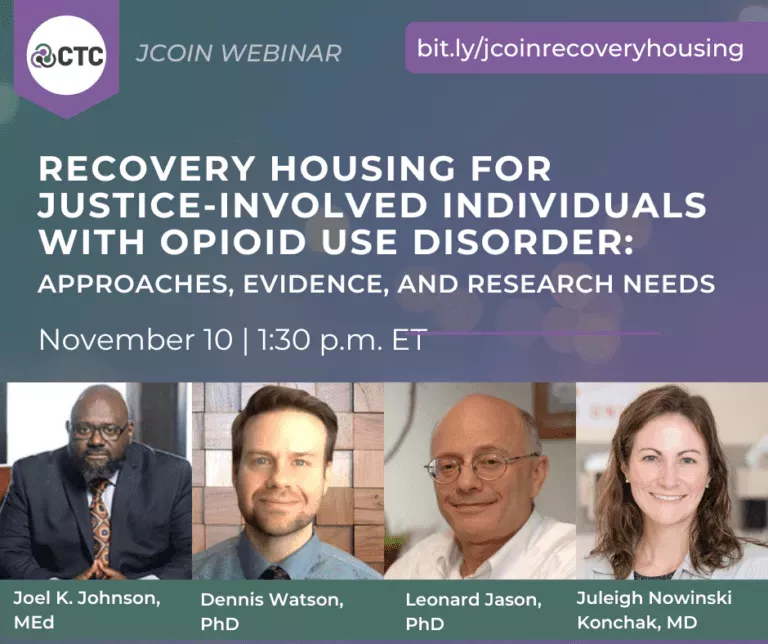
posted: Oct 20, 2022
JCOIN Webinar | Approaches to Housing People Living with Substance Use Disorders
In this JCOIN webinar, Dr. Leonard Jason will provide a description of recovery housing, including the current evidence base and research needs. He will also present results from his research on the Oxford House model. Implications for justice-involved individuals and individuals receiving medication-based treatment will be discussed. Dr. Juleigh Nowinski Konchak and Dr. Dennis Watson will then present a current project funded by the U.S. Department of Justice that is seeking to develop a recovery housing navigation model for justice-involved individuals who are receiving medications for opioid use disorder treatment. They will specifically describe the process of developing the program, formative evaluation results, and lessons learned.
Read more

posted: Oct 12, 2022
PAARI 101 Webinar Monthly Registration
This monthly webinar is an opportunity for individuals and departments to hear more about the history of non-arrest deflection models, PAARI's partners' programs, and the benefits of joining PAARI. We host this webinar every third Thursday of the month.
Read more

posted: Oct 05, 2022
Conversations on Diversity, Equity and Inclusion
Join Dr. Frank Clark and Dr. Sara Coffey in Episode 1 of the "Conversations on Diversity, Equity and Inclusion with the Medical Director Institute" video series as they discuss historical trauma, mass violence and healing through a lens of self-reflection and discovery. The series features members of the National Council's Medical Director Institute engaging in meaningful discussions with other leading experts and peers in the mental health and substance use field about their personal and professional journeys in the DEI space. Visit TheNationalCouncil.org/MDI to learn more! Resources discussed in this episode include:
"The Other Side" - Dr. Frank A. Clark (https://amzn.to/3SlwGT7)
"The Runners Paradox" - Dr. Frank A. Clark (https://bit.ly/3UmFR7P)
"The Sum of Us: What Racism Costs Everyone and How We Can Prosper Together" - Heather McGhee (https://bit.ly/3LypVuX)
Check out our Conversations on Diversity, Equity and Inclusion with the Medical Director Institute playlist to view the other videos in this series: https://bit.ly/3BDf7rb
Read more

posted: Sep 30, 2022
JCOIN Speaker Series: Measuring and Operationalizing Recovery Capital with Dr. David Best
In this webinar, psychologist and criminologist David Best, PhD, discusses recovery capital, how and why it is measured, what to do with the results, and the present status of development work.
Read more
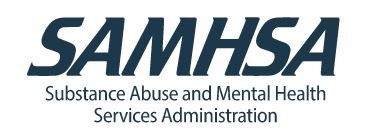
posted: Aug 31, 2022
On International Overdose Awareness Day, HHS Announces Awarding of $79.1 Million in Overdose Prevention Grants
On International Overdose Awareness Day, the U.S. Department of Health and Human Services (HHS) through the Substance Abuse and Mental Health Services Administration (SAMHSA) is announcing the awarding of $79.1 million in overdose prevention grants, as part of President Biden’s National Drug Control Strategy, the HHS Overdose Prevention Strategy, and the Biden-Harris Unity Agenda to address the opioid and overdose epidemic.
Read more
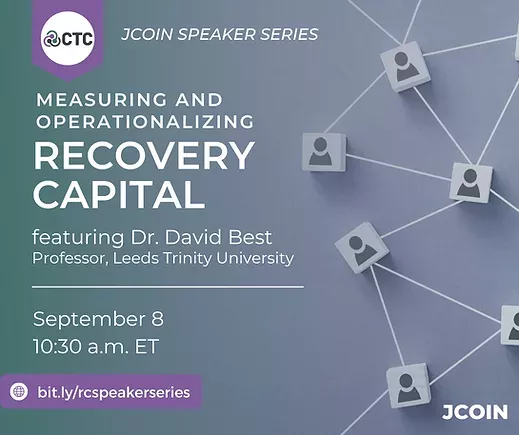
posted: Aug 26, 2022
JCOIN Webinar: Measuring and Operationalizing Recovery Capital
The Justice Community Opioid Innovation Network invites you to a webinar on Measuring and Operationalizing Recovery Capital with Dr. David Best on Thursday, September 8 from 10:30 a.m. - 12 p.m. ET.
Recovery capital helps us better understand the process of recovering from a substance use disorder (SUD) and determine the success of recovery and treatment interventions, improve coping strategies, and enhance an individuals’ quality of life in recovery. Understanding how to measure and operationalize recovery capital can help criminal justice and healthcare professionals better serve justice-involved individuals with SUD.
In this webinar, psychologist and criminologist David Best, PhD, will discuss recovery capital, how and why it is measured, what to do with the results, and the present status of development work.
Read more

posted: Aug 25, 2022
PAARI 101 Webinar Registration
This monthly webinar is an opportunity for individuals and departments to hear more about the history of non-arrest deflection models, PAARI's partners' programs, and the benefits of joining PAARI. We host this webinar every third Thursday of the month.
Read more
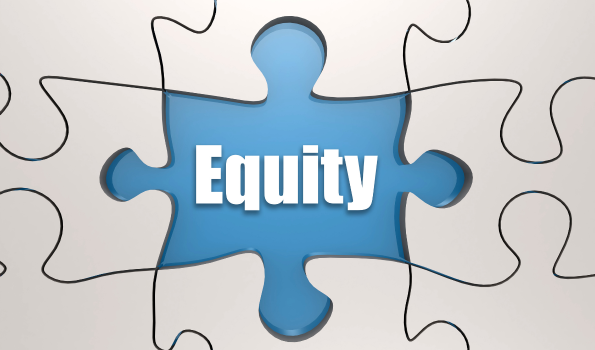
posted: Aug 25, 2022
Talking About Equity in Action | Recorded Webinar
This webinar focuses on defining equity and examining actionable steps toward inclusive practices. The presenter reviews relationships between equity and organizational change and facilitates a space for open and productive dialogue that honors the narratives of people experiencing marginalization. A goal of the session is to pivot from performative and siloed diversity initiatives by starting with equity, leading to a more sustainable, authentic, and trauma-informed culture shift. We review dominant culture and institutional biases that may uphold inequities and strategize around dealing with resistance to essential equitable practices.
Learning Objectives:
Define and provide tangible examples of equity.
Assess our readiness to engage meaningfully in conversations around equity.
Review common organizational pitfalls in implementing equitable practices.
Assess what transformative change looks like in practice.
ADDITIONAL RESOURCES
Presentation slides
Highlights & Key Concepts Document
Racial Equity and Cultural Diversity – a collection of resources curated by the MHTTC Network
FACILITATOR
Ashley Stewart, MSW, PhD, LSW
Read more
posted: Aug 24, 2022
BJA's Comprehensive Opioid Stimulants and Substance Abuse Programs Webinars and Podcasts
Comprehensive Opioid, Stimulant, and Substance Abuse Program (COSSAP) Key Recommendations for Enhancing Public Safety and Public Health Partnerships to Address Stimulants
Read more
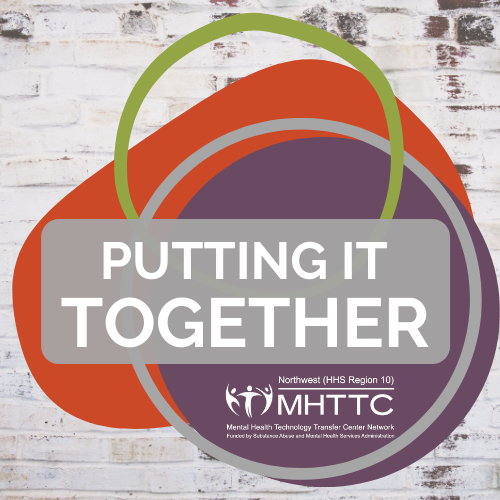
posted: Aug 24, 2022
A Podcast for the Mental Health Workforce
Putting It Together is designed to help people working in the mental health field hear ideas, implement skills and develop new approaches to their practice. Topics include research expertise, clinical experience, lived experience, equity and social justice concerns, or a mixture of all those and more. Recent episodes address LGBTQ+ youth suicide prevention, equity, and co-occurring disorders.
Read more
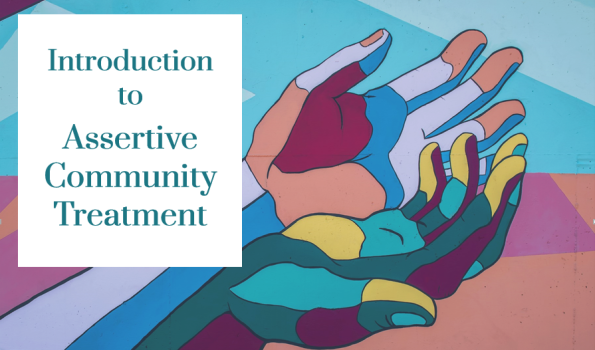
posted: Aug 23, 2022
Introduction to Assertive Community Treatment (ACT)
New in August 2022!
This 2-hour self-paced course is designed to introduce the evidence-based practice of Assertive Community Treatment (ACT) for ACT team members, and those who oversee ACT teams at various levels (e.g., agency, state). Covering the origins and philosophy, and core elements of high-fidelity ACT, this course provides an overview for those new to the model or who have limited experience with ACT. It can also be used as a 'refresher' training for existing team members. The model is discussed in application through three fictional ACT service recipients, that have been informed by decades of experience by the course creators, Lorna Moser, PhD (UNC), and Maria Monroe-DeVita, PhD (UW).
Read more
